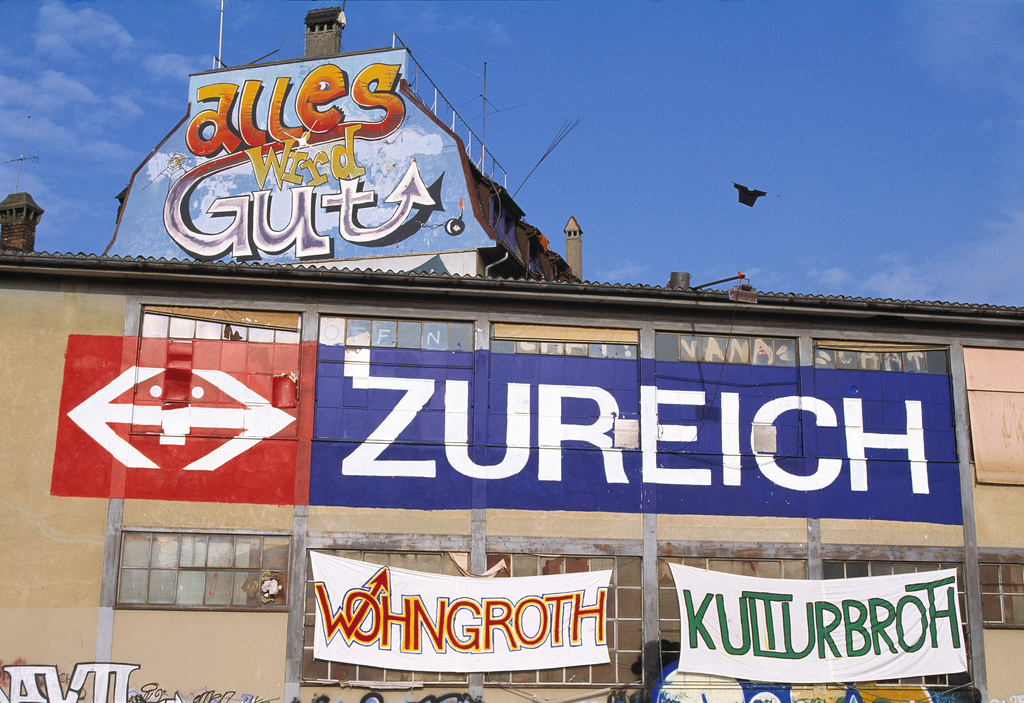
Why Switzerland’s wealth is all relative

Switzerland is often described as the richest country in the world. But is that true? As so often, it all depends on what criteria you use.
According to a 2006 report issued by the World Bank and entitled “Where is the Wealth of Nations?”, Switzerland is indeed the richest, with theoretical assets of $648,000 (SFr 688, 500) per capita.
That was long before the financial crisis that started in 2008, and whose consequences are still being very much felt. A speaker for the World Bank office in Berlin told swissinfo.ch that the study has not yet been updated.
But it is nevertheless relevant, since it was the first to try to measure the wealth of nations by estimating the monetary value of “produced, natural and intangible” assets.
Intangible assets include such things as forests, mineral resources and energy sources, as well as intangible capital like education and good governance.
While between a third and a half of the wealth of the poorest countries lies in their natural resources, in Switzerland the proportion is only one per cent. In rich countries more than 80 per cent of their wealth lies in their intangible capital.
Naturally the study does not suggest that everyone in Switzerland actually owns assets worth more than half a million francs. Rather, it has converted all the assets into monetary terms, and divided the total by the number of the population.
Per capita income
The World Bank study is only one of many which attempts to measure prosperity. Most surveys use a different approach: they take the gross domestic product (GDP) and divide it by the population.
The International Monetary Fund (IMF) uses this method, and in April 2009 placed Switzerland fourth – behind Luxembourg, Norway and Qatar. When adjusted to take purchasing power into account, Switzerland slipped back to eighth position.
But the World Factbook issued by the United States Central Intelligence Agency put Liechtenstein in top position, with per capita GDP of $122,100, with Switzerland figuring only in 18th position, with $41,660.
The aim of the World Bank study was to understand the prospects for sustainable development in the world, aimed at developing nations, and it came with specific recommendations based on its findings.
Why rankings?
But are rankings in general helpful in any way – and given that they seem to vary so much, do they mean anything useful?
“Every individual element in these rankings is informative and allows you to see where you are relative to other countries,” Peter Balastèr, head of Growth and Competition Policy Department at the State Secretariat for Economic Affairs (Seco), told swissinfo.ch.
“But the difficult thing about the rankings is that the various indicators are combined together in a fairly arbitrary way, and the elements are given different weighting, so economists are not altogether convinced by them.”
The statistics used in international reports are normally those supplied by government offices; one notable exception is in the ranking issued by the World Economic Forum, which uses elements from surveys it conducts among entrepreneurs, which are naturally subjective.
Subjective opinions are interesting, he says, but when combined with objective indicators, the result is somewhat questionable.
Political capital
Asked whether Switzerland’s good rankings are useful politically, Balastèr laughs.
“We don’t always want to tell politicians that everything is fine. Sometimes we want to change things. We can say: we are doing well here and here and here, but look, here’s somewhere where there’s room for improvement.”
“If you are always at the very top, this can lead to complacency,” he warned. But whether Switzerland comes first, or third, or fifth depends basically on the weighting given to the various elements.
It would be a different matter if it was suddenly ranked half way down the list. “Then you’d wonder whether there hadn’t been some errors in the calculations, or if there was some truth to the figures.”
And why does Switzerland always do so well?
“We’ve always been good, and we make every effort to remain so,” Ballastèr laughs again.
“More seriously, I think it’s been because we have a feeling of civic responsibility, a lean administration, we’re pragmatic, and results-oriented. Those are all important elements.”
Julia Slater, swissinfo.ch (with input from Gerhard Lob)
The 2006 World Bank study estimates the highest theoretical per capita assets as follows:
Switzerland $648,241 Denmark: $575,138
Sweden: $513,424
USA: $512,612
Germany: $496,447
and the lowest:
Niger: $3,695
Rep of Congo $3,516
Burundi: $2,859
Nigeria: $2,748
Ethiopia: $1,965
Home of the world’s biggest art fair, longest tunnel and oldest organ, maker of the world’s most complex watch and biggest army knife, the country with the most politicians and Nobel prize winners – Switzerland holds many records, and for almost a year swissinfo.ch has been bringing you a new one every Monday.
Today’s story is the last in the series.
You can still find all the stories, galleries, slideshows and videos in the Switzerland for the Record Special.

In compliance with the JTI standards
More: SWI swissinfo.ch certified by the Journalism Trust Initiative


























You can find an overview of ongoing debates with our journalists here . Please join us!
If you want to start a conversation about a topic raised in this article or want to report factual errors, email us at english@swissinfo.ch.